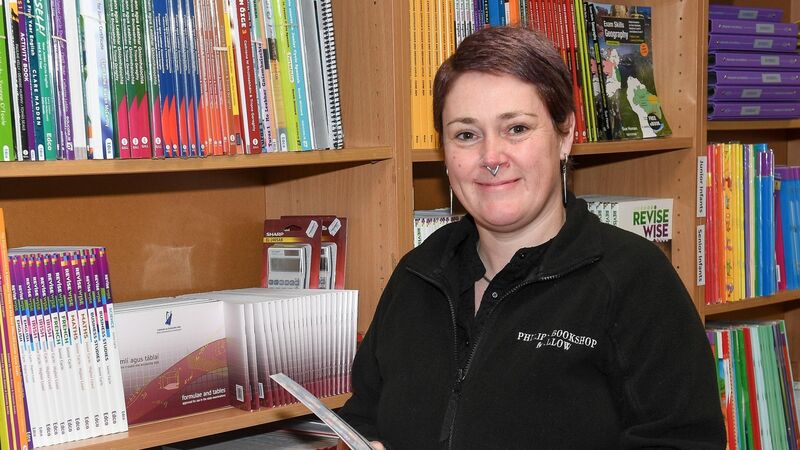Free schoolbooks: Parents are the winners, but who are the losers?

June Rahilly of Philip's Book Shop, Mallow: Free schoolbooks 'a crushing blow' for book shops. Picture: David Keane
The Government’s free schoolbooks scheme is “pulling the rug out from under” small independent book shops and even putting some out of business.
That’s according to independent book shop owners and their representative organisation Booksellers Ireland. Since the rollout of free schoolbooks for all primary school children last September, nine book shops have closed around the country, with some explicitly blaming the free school book scheme.










